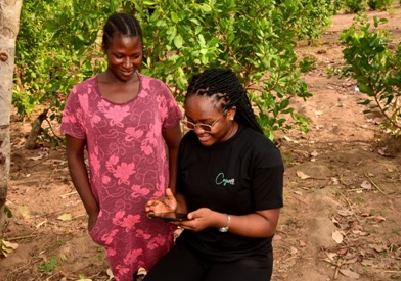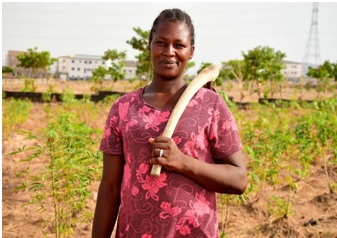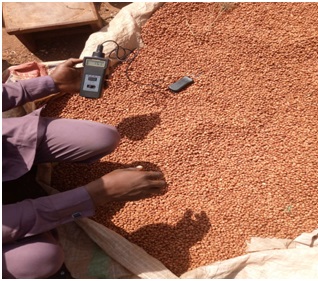Information and Communication Technology (ICT) plays a pivotal role in transforming various sectors and agriculture is no exception. Farmers, often considered the backbone of our society are increasingly benefiting from the integration of ICT into their daily practices.

"ICT is not just about better smart phones or faster internet. It's also about using technology to help the world's poorest, particularly in agriculture." Bill Gates
One of the most significant advantages of ICT for farmers is the easy access to vital information. Through mobile apps, websites and text messages, farmers can now receive weather forecasts, market prices, and agricultural best practices. This real-time data equips them with the knowledge needed to make informed decisions.
Precision Farming
ICT tools such as GPS-guided tractors and drones enable precision farming. Farmers can optimize the use of resources like water, fertilizers, and pesticides, leading to increased productivity and reduced environmental impact.Market Access
ICT platforms and mobile apps connect farmers to a broader market. They can access buyers and sellers, negotiate prices, and track market trends. This has reduced intermediaries and increased farmers' profits.Farm Management
Farm management software helps farmers keep detailed records of their operations. They can monitor crop growth, track expenses, and manage inventories more efficiently, leading to better financial planning.Pest and Disease Management
: ICT can aid farmers in identifying and managing pests and diseases in their crops. Smartphone apps and sensors can detect issues early, allowing for timely interventions to save crops..Financial Inclusion
Farming plays a crucial role in ensuring food security during crises. In times of natural disasters, economic downturns, or pandemics, having a robust farming sector is a lifeline. Locally grown food can be more accessible and reliable than imports during these challenging periods.Education and Training
Sustainable farming practices are key to long-term food security. By investing in and adopting sustainable agricultural techniques, such as organic farming, crop rotation, and conservation agriculture, we can ensure that the land remains fertile and productive for generations to come.Climate Resilience
Farming helps reduce food waste by producing only what is needed and preserving excess harvests for future use. Efficient farming practices and better food distribution systems can minimize losses from field to tableData-Driven Decision
Farming helps reduce food waste by producing only what is needed and preserving excess harvests for future use. Efficient farming practices and better food distribution systems can minimize losses from field to table"Farmers armed with smart phones are modern-day pioneers. With access to knowledge and markets at their fingertips, they are transforming agriculture."

Information and Communication Technology has brought about a profound transformation in agriculture,
empowering farmers to become more efficient, productive, and resilient. The integration of ICT not only benefits
individual farmers but also contributes to global food security and sustainable agriculture practices. The future of farming is
undoubtedly intertwined with the power of technology, and it's a bright and promising future indeed.
ICT can be empowering for farmers, particularly the low-income farmers with limited assets and purchasing power
to the extent that these information and communication technologies;
a. Enable them gain access to and control over more and better resources on favourable terms, which they can contribute to their own or others production processes and for which they can remuneratively compensated.
b. Inform them about and give them access to new or better technologies that can make their available resources more productive and also better knowledge and skills for utilizing these technologies.
c. Link them into organizations, formal or informal, that give them access on favourable terms to resources and technologies as well as to markets for their products, and also enable farmers organizations to function more effectively, using their available resources and technologies more productively.

At Cozance we provide new technologies to make farm process easy and access to expansion capital.
